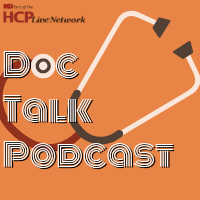Video
Long-Acting Injectable Antipsychotics for Schizophrenia
Author(s):
Transcript: John M. Kane, MD: Taking oral medicine is not confined to people with chronic and severe mental illness; it's a problem for everyone. One challenge is that we need to do destigmatize nonadherence. Nonadherence is human nature. Everyone has trouble taking medicine on a chronic basis, no matter what illness. We have to stop conveying to patients that they're a bad person or a bad patient because they failed to take their medicine. The message should be, “This is human nature, we all struggle. Let’s figure out a way you can get the benefit from medication.” This is a very powerful argument for long-acting injectable medicine. It's not a punishment; we're not trying to punish you for missing your medicine. We're trying to ensure you get the benefits from it.
Another factor is the issue of dose adjustment. One of the challenges we've identified through research over the years is to understand the minimum effective dose to prevent relapse. We want to minimize the adverse effects of medicines that people take. We want to use the lowest possible dose, but unfortunately when we're talking about an illness like schizophrenia, the only way we know that we've gone too low with the dose is if somebody relapses. This may not happen immediately, it may take some time. But if we do decide that a patient could sustain a lower dose, when we start an oral medicine, we don't know what's happening. If a patient relapses, we don't know if it's because the dose was too low or because the patient stopped taking the medicine. When we've done studies of dose response in long-term treatment, we've used long-acting injectable medicine. This is the only way we can feel confident of the results. The same thing applies clinically, if we're going to try to adjust the dose to a low level, we want to be sure that the patient is getting the dose we intend. We have better control over that with long-acting injectable medicine.
Henry A. Nasrallah, MD: We all like to initiate clozapine after a patient fails to respond to 1 or 2 medications. We can never tell if the patient is not responding to the medication due to either total nonadherence, partial nonadherence, or whether it is nonresponse to the medication. The only way you can tell if a patient is resistant is to give them a long-acting injectable. If they don't respond with guaranteed adherence after 6 months, the patient should go to clozapine. We can identify the clozapine candidates much earlier than we do with oral [medications], if we start with a long-acting injectable.
John, M Kane: I agree with you. That should be the clinical strategy before we decide that someone is treatment resistant. They should have a trial of a long-acting injectable medicine.
Sanjai Rao, MD: Difficulty with dosing highlights another challenge with oral medications. When you dose medication orally, you're getting drug level effects that you typically don't get with long-acting injectable. There are some [adverse] effects that are going to be caused by long-term drug exposure, such as metabolic [adverse] effects or tardive dyskinesia. That's going to be the same whether you're giving an oral or long-acting drug. But there are other [adverse] effects that are related to peak plasma levels. Events that could happen within a few hours of injection, where you take a drug and then 2 to 4 hours later you get a peak level, and that peak level precipitates a dystonic reaction or makes someone sedated. We see sedation particularly in the homeless population. I've had many homeless patients tell me that they would take their medication, but they're worried about being sedated at night and having to escape a potentially dangerous situation when they're not alert. They would otherwise be willing to take it, but can't afford to.
Erin C. Crown, PA-C: We need to consider a challenge with oral medications to be if there is a food intake requirement with it. When we look at the schizophrenia population, a number of them have food insecurity, lack of access to food, or unhealthy eating habits.
Asking them to make sure that they consume a certain number of calories with every dose of medication that requires food intake as part of its absorption process, it’s another challenge.
I understand clozapine’s efficacy, but it comes with its own unique challenges with regard to the frequency of laboratory requirements as well as multiple trips to the pharmacy, especially early in initiation. For some, going to the pharmacy and having labs drawn weekly is difficult. Some people can't manage that and they don't have the support.
Henry A. Nasrallah, MD: Yes, I have to remind you that this is one of the secret ingredients for why clozapine is sold. Not only because it's a superior antipsychotic efficacy but frequent contact, once a week, can be helpful compared to once a month.
Erin C. Crown, PA-C: No argument.
John M. Kane, MD: That underscores the importance of trying a long-acting injectable before going to clozapine. Given the challenges in using clozapine, it would be a shame to be prescribing it to someone who was only pseudo treatment resistant because they hadn't been taking the medicine that they were prescribed. And some studies have shown that patients who are referred to a treatment resistant program, a substantial proportion of them have low or nondetectable blood levels. It underscores how important that is.
Transcript Edited for Clarity





